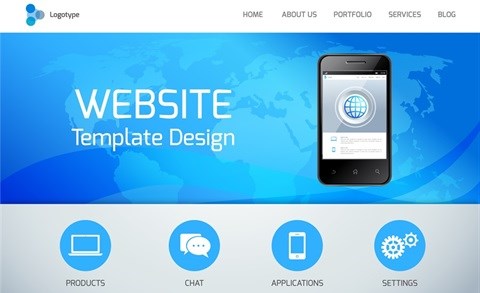If there's one thing that B2B marketing has taught me, it's that your marketing collateral is actually one of your most important business tools.
You can have the best IT system in the world, all the knowledge you need at your fingertips, the best staff and all the latest tools and equipment, but if you aren't generating clients then it all really counts for nothing.
At the forefront of today's marketing must-haves is your website, largely because we all default to the Internet when we're looking for products, services or information nowadays.
In fact, if you're only going to invest properly in one piece of collateral, your website should be it.
So what can and should you expect from your website development?
1. Show your services at a glance
The most important thing any piece of marketing collateral does is clearly display what you have to offer, so that the people who are looking for that product or service can easily identify you as a solution to their needs.
One of the most difficult things to do is convey that information succinctly and clearly. Your greatest tool in this arena is your menu structure.
A really good website will tell you everything you need to know about the business, its products and services simply by scrolling over the menu structure.
Likewise, the use of elements like infographics, word clouds, iconography and more can help you easily convey this information in an exciting and appealing way.
The important thing is that people can see what you need them to know at a glance - regardless of which page of your site they land on.
2. Be easy to navigate
Intrinsically linked to showing your services at a glance, people need to be able to jump to the information they could or should be interested in without effort or search.
The rule of thumb to remember here is that if people have to look for something they're going to leave your site.
So link elements that are connected to the page they're interested in off that page, make sure that highlights and features are in the viewer's face and remember to put anything that is a special offer or magnet onto every page of your website.
Remember that people will rarely land on your front page, and if your site doesn't encourage them to explore further you're throwing away potential business.
3. Make it easy for clients to contact you
This really seems like a no brainer, but time and again you'll get onto websites where contacting the owners can be nearly impossible to do.
At the end of the day, people do business with people, and so you have to make it easy for clients to reach a real live person and ask their specific questions.
Likewise you have to lose the idea that you are replicating information by having it in multiple places - especially contact information.
Repeat it in the footer, have dedicated contact pages and put your telephone number on top of every page, because people won't navigate your whole website, most often they'll bounce from the page they originally landed on.
Likewise put up photos and bios of your team - people are much more likely to contact you if they know who they're going to speak to.
Lastly make sure your forms are going to a valid email address that is monitored and that someone efficient is receiving mail sent to your generic email addresses like info@domain.co.za.
There's nothing more frustrating for users than sending off a whole bunch of forms with enquiries and having no one come back to you. It just leaves a bad taste about the business in your mouth.
4. Contain all frequently requested information
Every business has elements, forms and information that clients, suppliers and staff need access to on an ongoing basis. Your website should be the first port of call for this.
First it's going to save you time and admin if people can just go and download what they need and don't have to bug you.
Secondly the rule of the Internet is simple: the more traffic you have, the more it validates your website and the more traffic the Internet is going to send to you.
By ensuring a steady flow of traffic through your site by driving people to it will actually significantly improve your SEO rankings and how you return in search results.
5. Geographic location
Websites nowadays have really cool features, like the ability to identify where in the world a visitor comes from and then show them the content relevant to them.
The Internet has changed the way we do business and we're no longer limited to a single geographic area, so use this to your advantage.
Show clients pricing in their currency, delivery options for their region, contacts for their region and even match your copywriting to the version of English that they are most likely to use.
In fact, you can even go as far as having information displayed in another language if you work in a multi-language environment.
6. Be your silent salesman
By containing all your product and sales information, your website becomes your silent salesman, accessible by anyone, anywhere, at any time.
Have links to every bit of information you can find to link to the page in question, motivation for the user to buy and even audio and video content and relevant downloads.
Ensure you have easy contact info on every page and if you have physical products, implement a cart and put those online.
Make it as easy as possible for people to engage with your website and they will. Make it as easy as possible for people to buy from or contact you and they will.









































